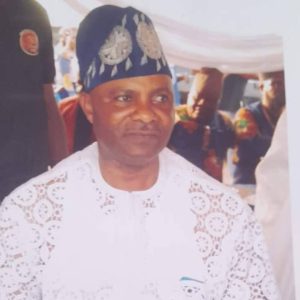
Oodua People’s Congress reformed president, Oludare Adesope on fuel subsidy advised Nigerians to cooperate with president Tinubu on his decision to stand with fuel subsidy removal. Adesope say this while addressing the press at OPC(R) headquarters in Lagos.
According to him, president Bola Ahmed Tinubu at his inauguration on Monday May 29, at Eagle Square in Abuja publicly announced the total removal of the popular fuel subsidy that has been lingering for lengthy years, resulting in high prices and long queues nationwide. Although the policy goes into effect on July 1, it has already sparked concerns and chaos as Nigerians rush to buy fuel before its cost increases even further.
‘’The fuel price is expected to jump from the official pump price of 185 naira to between 350 and 550 naira where some oil marketers hide under the canopy of the president’s announcement to deprive the citizens from getting the fuel for use
Adesope goes further to give a detailed meaning of fuel subsidy in Nigeria where about 70 million litres of fuel are consumed daily by Nigeria’s estimated 200 million people.
Nigeria’s oil is refined in Europe and imported back to Nigeria, a process that contributes to its high costs. Those costs are shouldered mostly by the Nigerian government as subsidies to reduce the costs of fuel paid by the consumers.
This retail cost determines the costs of almost every good and service in Nigeria. The Nigerian government introduced an oil subsidy to cushion the effect of rising global oil prices in the 1970s. The Olusegun Obasanjo military regime formalized the subsidy in 1977 when it promulgated the Price Control Act which regulated prices of items including fuel.
Going further, the OPC boss explained that subsequent administrations attempted to remove the subsidy but failed to do so because it is widely popular among citizens, many of whom consider it their major – or only – benefit from the federal government. It gradually became a heavy burden to the government as the cost of maintaining the subsidy increased over the years.
Subsidy became popular and came to limelight in January 2012 when then-president Goodluck Jonathan announced its removal. Fuel prices increased from 65 naira to 140 naira per litre.
The removal sparked widespread protests for two weeks, organised by labour unions, civil society and opposition party leaders, The protests brought the country to a standstill, forcing the government to lower the price to 90 naira and reintroduce the subsidy.
Subsidy payments have always been thwarted by issues of corruption and a lack of fiscal transparency. In 2012, a 200-page report released by a parliamentary inquiry uncovered a $6bn fraud, involving officials at the state-run Nigerian National Petroleum Company (NNPC) now a limited company. Since then, governors and members of parliament have routinely called for an investigation into NNPC and a review of subsidy payments to oil marketers.
In 2015, former president Muhammadu Buhari referred to the subsidy as “fraud” and “non-existent” even though his administration retained it, spending 11.7 trillion naira ($26bn) between 2016-2023.
Ahead of the February 2023 election, all three major presidential candidates promised to remove the subsidy and introduce oil sector reforms in their manifesto, signifying a consensus among the political class to do away with the assistance.
The Buhari administration left a 77 trillion naira ($167bn) debt to local and foreign creditors. Already, 96 percent of the government’s revenue is being used to service debt and there are fears the government’s cash crunch could worsen if subsidy payments continue.
Since the depletion of state coffers, the subsidy payment under the past administration was serviced via debts, according to the former finance minister. Adesope affirmed